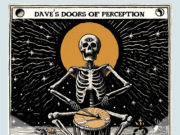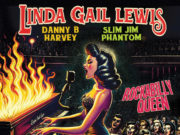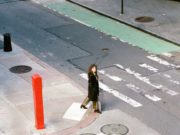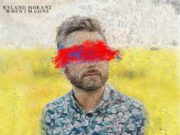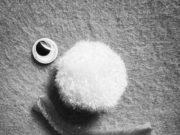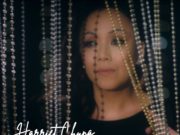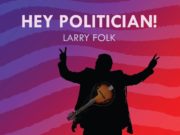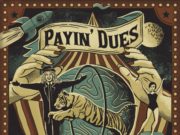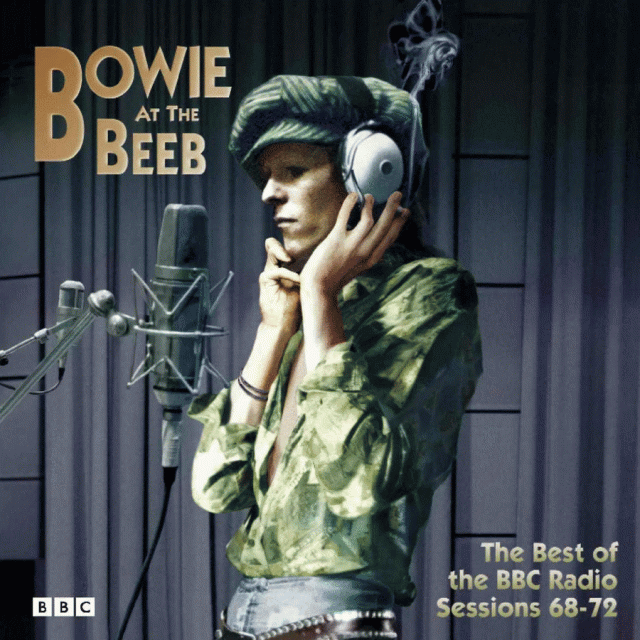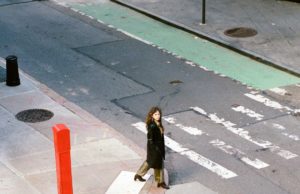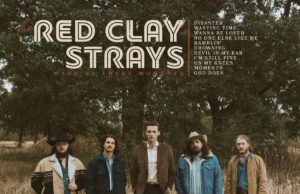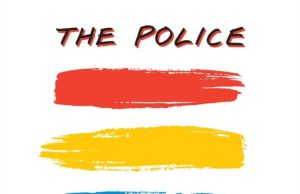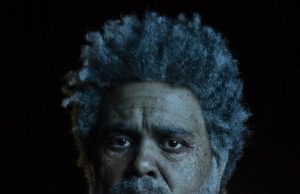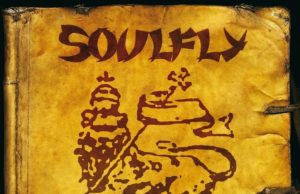Two decades ago, new albums from David Bowie, Joe Jackson, Godspeed You! Black Emperor and others were spinning away in my portable CD player. Here’s what I had to say about them back then (with some minor editing):
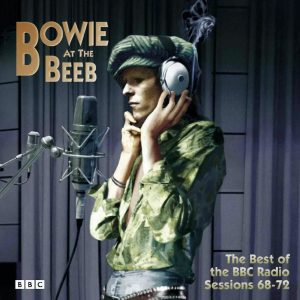 David Bowie
David Bowie
Bowie at the Beeb: The Best of the BBC Sessions
Some box sets come with all the bells and whistles — big shiny packaging, giant glossy books, posters, hundreds of colour photos, smartly written essays by big-name rock critics, yadda yadda yadda. Bowie at the Beeb, the long-awaited new collection of David Bowie’s BBC Radio performances from the late ’60s and early ’70s, doesn’t have any of that crap. It comes in a little cardboard slipcover that holds the discs and your standard 24-page CD book with basic liner notes and track info. No 3-D glasses, no stickers, no commemorative certificates. Even so, this set deserves to be at the top of every fan’s wish list. Mainly because it has something more valuable than any cheap collectible — some of Bowie’s rarest and strongest performances from the most vital years of his early career.
Bowie at the Beeb’s 37 songs were recorded over a five-year span — roughly ’68 to ’72 inclusive. Nowadays, that’s about as long as some bands take between discs. But in an era when The Beatles and Rolling Stones each put out two albums a year, four years was longer than some careers. And it was plenty of time for an artist to evolve or even change completely. Which is exactly what we hear the former David Robert Jones doing on these tracks, transforming from a ’60s popster and folksinger into the otherworldly Ziggy Stardust — and inventing glam rock in the process.
Things kick off with the flowery bounce of In the Heat of the Morning and London Bye Ta Ta, both of which find the young Bowie crooning along like a swinging popster to the sweet, syrupy strains of the 14-piece Tony Visconti Orchestra. Thankfully, it doesn’t take long for Bowie to hit his stride. By his third session in early 1970, he’s teamed up with bottle-blond guitarist and musical foil Mick Ronson. His crunching guitar sound imbues tracks like Unwashed and Somewhat Slightly Dazed and The Width of a Circle with some much-needed oomph that leads Bowie into the rockier terrain of Bombers, It Ain’t Easy and Chuck Berry’s Almost Grown.
Ronson and Bowie truly hit their stride on Disc 2, which is mainly devoted to sessions from 1972, the year they formed The Spiders from Mars and released Ziggy Stardust and Hunky Dory, two of Bowie’s finest studio albums. But as these live versions of timeless numbers like Hang on to Yourself, Ziggy Stardust, Queen Bitch, Suffragette City, Starman and Oh! You Pretty Things make abundantly clear, the band was equally powerful in a live setting, with Ronson dashing off guitar-god solos as Bowie spurs them through raw, energized performances. These readings are so adrenalized Bowie even turns Waiting For the Man and White Light/White Heat — two of Lou Reed’s Velvet Underground heroin odes — into glam-rock firecrackers.
But even though most of this disc is dynamite, some aspects of it fizzle. Much of the sound — especially on the earlier disc — is quite dodgy, owing to the age of the tapes and the BBC’s comparatively primitive recording techniques. Even worse, especially from the collector’s point of view, is that this set isn’t complete. Some sessions aren’t fully presented; others are ignored completely. What’s the point of digging up — and fixing up — all these tapes if not to release them all? I’m willing to bet the answer will be five words: Bowie at the Beeb 2.
Still, true fans won’t — and shouldn’t — hesitate to snatch up this fine set. And they’ll probably even appreciate the special bonus disc BBC Radio Theatre, featuring a live gig taped this summer in a London sound studio. It hardly compares to the Beeb fare — the 15-song set alternates too-familiar hits like Ashes to Ashes, Let’s Dance and Fame with inessential recent material like Always Crashing in the Same Car and This is Not America. Even so, it’s ample proof that Bowie still hasn’t lost his touch.
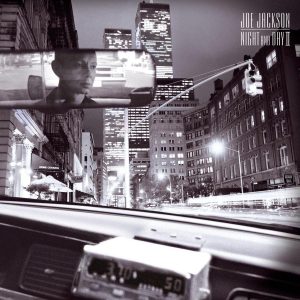 Joe Jackson
Joe Jackson
Night and Day II
The original 1982 Night and Day was a watershed that broadened Joe Jackson’s range with the Latin rhythms and pop sophistication of Steppin’ Out and Breaking Us in Two. It was also his last truly great studio album — and this lacklustre sequel isn’t about to take its place. A love letter to New York City, this 10-track song cycle is built from the meticulous, tightly constructed neo-classical sound Jackson has embraced since turning his back on pop a few years back. But it’s too much concept and not enough content. None of the tracks hold the suave and melodic beauty of their predecessors. Worse, Jackson paints himself into a conceptual corner by setting nearly all the CD to one tempo, anchored by an everpresent shaker that’s apparently meant to symbolize NYC’s relentless pace but grows as annoying as being stuck on the subway. And the less said about his drag-queen diva alter ego Dale De Vere, the better. Ultimately, this overwritten disc fails to capture one of New York’s most addictive trait — its unpredictability.
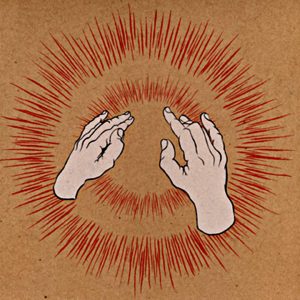 Godspeed You! Black Emperor
Godspeed You! Black Emperor
Lift Your Skinny Fists Like Antennas to Heaven
Nothing about this Montreal post-rock instrumental outfit adheres to the conventions of contemporary pop culture. Not their overly long name, taken from a Japanese bike gang documentary. Not their lineup, which seems to fluctuate between nine and a dozen members who seldom speak to mainstream press or even reveal their names. Not their instrumentation, which includes everything from saw to strings along with the usual guitars and drums. And certainly not the sound of this second full album, which is nothing short of an awe-inspiring amalgam of ambient atmospherics, proggy progressions, noisy humming and buzzing, artsy urban-jungle samples and spoken word segments and powerful orchestral rock, all swirling together in dynamic multi-part epics (this two-CD set has four tracks) that ebb and flow with all the slo-mo grace of underwater ballet. If that sounds unbelievable, well, so does this.
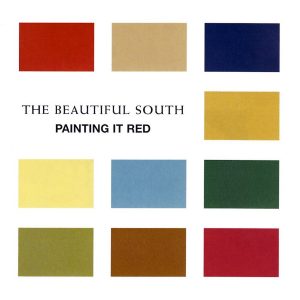 The Beautiful South
The Beautiful South
Painting it Red
In their native Britain, they’re legitimate stars whose albums debut in the top 10. But in North America, this wry pop septet could be the best band most people have never heard. The problem? In a nutshell, they’re too smart for the room. With all the plummy tones and sophisticated wit of a British miniseries, The Beautiful South’s three vocalists deliver deliciously cynical, cleverly literate lyrics of lovers, losers and lagers while the band weaves sweet ’n’ rootsy Squeeze-pop melodies that counteract the tart-tongued tales. Whether the subject is cheating men (“Don’t ever feel sorry for the dicks, just grab the dice and hope you roll a six”) or devoted spouses (“I’ll love you my dear ’til you can’t tuck it in anymore”), these are songs for those who understand that sometimes you have to laugh just to keep from crying.
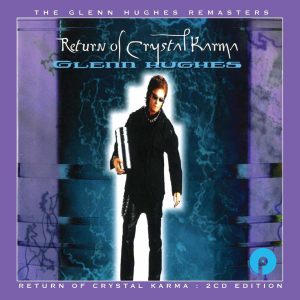 Glenn Hughes
Glenn Hughes
Return of Crystal Karma
Yes, that Glenn Hughes. The former Deep Purple bassist and onetime Black Sabbath vocalist hasn’t been in the spotlight much as of late, but he hasn’t retired. Far from it, actually; Return of Crystal Karma is his fourth album in as many years. And it’s no coincidence the title stands for R.O.C.K. — riffy fare like The State I’m In and Midnight Meditated harken clear back to the fiery, funky guitar-and-organ metal of classic Deep Purple nuggets like Burn and Mistreated. With the exception of the electronica-tinged Switch the Mojo, these tracks don’t break new ground as much as they show Hughes hasn’t really lost any. His classic metal voice still soars and growls like it did more than two decades ago, and judging by the reception he gets on the live CD included here, he can still pull it off live. Which is more than you can say for some others.
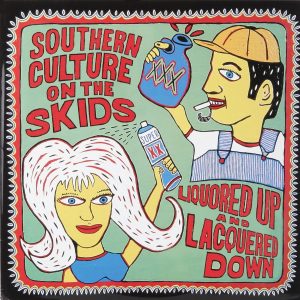 Southern Culture on the Skids
Southern Culture on the Skids
Liquored Up and Lacquered Down
Grease, grit, gravy and groove have always been the key ingredients on this hillbilly-boogie outfit’s Southern-fried menu. On this seventh disc, though, they add a few new side dishes to their usual chicken-pickin’ entrees. There’s the Tex-Mex spice of the opening title cut and Corn Liquor, the polk salad bayou twang of Pass the Hatchet, the Memphis horn-soul of I Learned to Dance in Mississippi or the backwoods blue-plate special of Drunk and Lonesome (Again). None of these tracks ranks up there with their classic 8-Piece Box, but now and again Liquored Up is still finger-licking good.
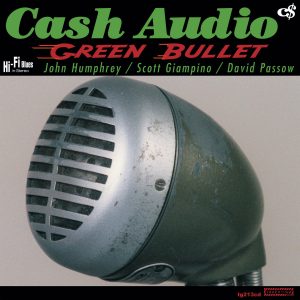 Cash Audio
Cash Audio
Green Bullet
These Chicago blooz-rawk cowpunks used to be Cash Money, until the humourless gangsta-rap label of the same name sicced the lawyers on them. Well, these good ol’ boys have a new handle, but they haven’t changed their game much. Like its two predecessors, Green Bullet is a sloppy, inbred hootenanny of white-trash devil music fuelled by equal parts hamhocks, moonshine and old Sun and Texas blues sides. With just yer basic hoodoobilly trio — guitar, drums and harmonica — these swamp rats hack, thwack, growl and howl their way through the same juke-joint terrain as The Flat Duo Jets, Oblivians or Jon Spencer minus the overamped bluesman shtik. Even better, they cook their own bacon onstage and serve it up along with tunes like Shifty-Eyed Devil, 44 Blues and The Power of Tequila. It’ll take more than a lawsuit to kill that.
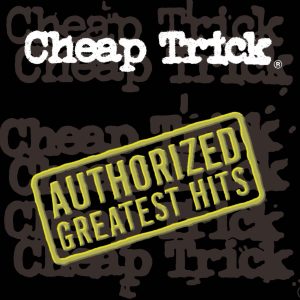 Cheap Trick
Cheap Trick
Authorized Greatest Hits
Authorized, shmautherized. All Cheap Trick greatest hits sets — and this is the sixth or so I’ve seen — are pretty much created equal. You get all their wimpier, poppier material (I Want You to Want Me, Tonight It’s You, Can’t Stop Falling in Love) and none of their heavier, earlier numbers (He’s a Whore, Ballad of T.V. Violence, ELO Kiddies). Authorized Greatest Hits (supposedly the band had a hand in this one) doesn’t stray much from this formula, although it does have the single version of Southern Girls and the TV theme That 70’s Song going for it. Of course, it also has a live version of The Flame and some truly cheap packaging (there isn’t even a picture of the band). Any of their first three studio albums (or the complete Budokan Concert) is a better purchase.
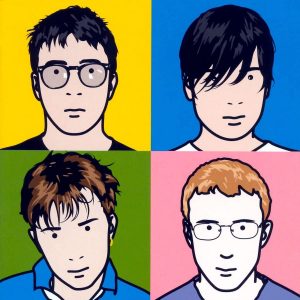 Blur
Blur
The Best Of
Blur’s greatest hits? Well now, lessee … there’s Song 2 (that “Whoo-hooo!” number from the beer ads). And there’s, um, Park Life, I guess. And … well, let’s just say North Americans definitely won’t find most of this disc annoyingly familiar. In a way, that’s part of its appeal — since most of Blur’s catalog is, well, a blur on these shores, this is a way to sample these acerbic Brit-popsters’ wares without emptying your pockets. And there are more than a few memorable moments — the Sunday afternoon techno-funker Girls and Boys, the cynical pop lolly Charmless Man, the loungy lullaby To the End and the Mott the Hoople-tronic electrorocker On Your Own to name a few. Of course, even that isn’t quite enough to justify the extra live CD, which basically rehashes half the set. Only a fan could say whoo-hooo! to that.
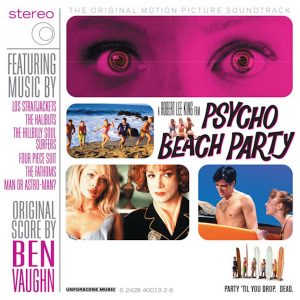 Psycho Beach Party
Psycho Beach Party
Various Artists
Surf-music compilations are a dime a dozen. Even so, this soundtrack to the upcoming bikini-beach B-movie spoof isn’t your usual Pulp Fiction-inspired wipeout. In keeping with the retro-spoof aesthetic, about half the tracks are old cuts from contemporary indie-surfers like Los Straitjackets, Man or Astro-Man? and Hillbilly Soul Surfers. The other half are the work of Ben Vaughan (author of 3rd Rock From the Sun’s twangy theme), who gives them enough Dick Dale riffs, Link Wray rumble, tom-tom thunder and snarling saxophone to keep you from getting (ahem) surf-bored.
 Fozzy
Fozzy
Fozzy
‘I meant to do that.’ It’s what you said when you went ass over teakettle as a kid, and it’s the story ex-Winnipeg rassler Chris Jericho sticks to on the embarrassing face-plant debut of his wretchedly untalented heavy metal band Fozzy. Rather than ’fess up to the truth about his CD — which consists of uninspired covers of classics like Stay Hungry, Live Wire and Blackout, with two forgettable originals — Jericho (calling himself, heaven help us, Moongoose McQueen, and backed by Stuck Mojo) spins a Spinal Tapish tale about how Fozzy are a metal outfit that got stuck for decades in Japan and actually wrote all these songs that others made famous. Oh sure, that’s just like Spinal Tap. Except that the Tap a) wrote all their songs; b) could actually sing (unlike Jericho — oops, Moongoose — who couldn’t carry a tune in his stuffed bathing-suit trunks); and c) were honestly funny. If you buy Fozzy, the joke’s on you.
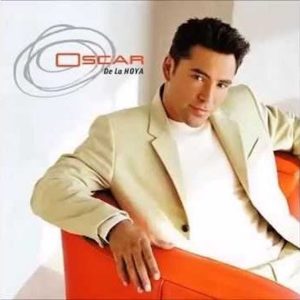 Oscar de la Hoya
Oscar de la Hoya
Oscar de la Hoya
If the above review didn’t make that clear enough, I’m certainly not in the habit of encouraging sports stars to step into the music ring. But hey, when a guy like pugilist Oscar de la Hoya decides to be a singer, who’s gonna tell him it’s a bad idea? But here’s the really weird part — as a romantic Latin-pop balladeer, he’s not that bad. And I’m not just saying that because he could pound me to jelly without breaking a sweat. OK, he’s no Pavarotti; hell, he’s not even Julio Iglesias. But his warm, caressing voice is certainly more than a match for Enrique. Sadly, so is his song selection. For such a macho guy, Oscar wimps out big-time — most of these 16 tracks are ultra-wussy ballads, including the abominable boxing-themed With These Hands by ubiquitous pop hack Diane Warren. From my corner, only his remake of The Bee Gees’ Run to Me connects. If Oscar wants to win this fight, he’s gonna need more songwriting talent in his corner.
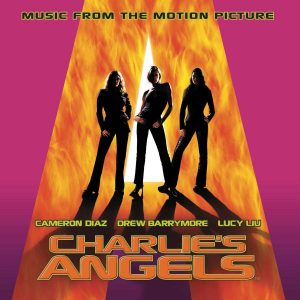
Charlie’s Angels
Various Artists
Just like with a book and its cover, it’s probably a bad idea to judge a movie by its soundtrack. Still, Charlie’s Angels the album does seem to have a few things in common with Charlie’s Angels the flick — both present beloved ’70s and ’80s kitsch with a nod to current technology and sensibility. Here, that translates into half a dozen winning new tracks (including Fat Boy Slim’s edgy and psychedelic Ya Mama, Apollo Four Forty’s groovalicious theme-song revamp, Destiny’s Child’s sassy hip-hopper Independent Women, and Angel’s Eye, the first Aerosmith soundtrack cut in a decade that actually rocks). Sprinkled among these gems are classic rhinestones like Leo Sayer’s You Make Me Feel Like Dancing, The Vapors’ Turning Japanese and, for some reason, Sir Mix-A-Lot’s Baby Got Back.
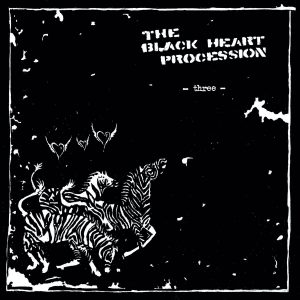 Black Heart Procession
Black Heart Procession
Three
On those dark, lonely nights when it’s finally over, when they’ve left and taken their stuff along with a big chunk of your self-esteem, and you’re sitting there in the dark with the lights out and the stereo on, getting as drunk as you can as fast as you can, this is the CD you should play. Not because it’ll cheer you up — hell no, this San Diego duo’s rickety, hauntingly sparse suicide notes of wrist-slash country make The Smiths seem like The Carpenters. But achingly beautiful songs such as Guess I’ll Forget You, Till We Have to Say Goodbye and Never From This Heart will remind you that no matter how far you’ve sunk, somebody else has been there and survived. And so will you.
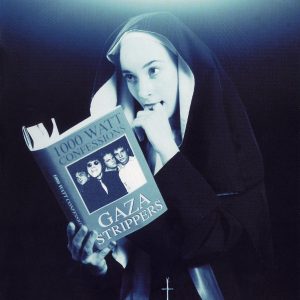 The Gaza Strippers
The Gaza Strippers
1000 Watt Confessions
Plenty of bands worship at the altar of ’70s rock. But former Didjits and Supersuckers guitarist Rick Sims has truly been possessed by its evil spirit. And on 1000 Watt Confessions, the second blistering album from his band The Gaza Strippers, he spews out his influences like so much pea soup. From Injected’s KISS-style glam boogie to Jesse Wayne’s Aerosmith blues-murk and Get Em Down’s adrenalized Alice Cooper riffs, 1000 Watt Confessions is a high-voltage, balls-to-the-wall trip back to the glory days of Flying V guitars, duelling lead solos and punky snot. Call it That ’70s Rock Show.
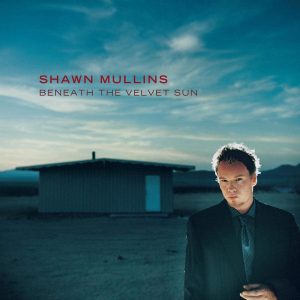 Shawn Mullins
Shawn Mullins
Beneath the Velvet Sun
At least Shawn Mullins doesn’t have to worry about sophomore slump. Yes, Beneath the Velvet Sun is his followup to his first big hit Lullaby — but it’s also the eighth album from this Atlanta troubadour, who toiled in obscurity for years before striking it rich with that Beckish nugget of folktronic gold. Predictably, the smoky-voiced singer-songwriter mines a similar vein for much of this disc, offering up half-spoken tales of hitch-hikers, down-and-outers and other lost souls over a rootsy bed of acoustic guitars, turntable-scratch textures, loops and samples. Here and there he flirts with soulful melodies and even Isaac Hayes-style R&B orchestrations, but for the most part the most visible change on Mullins’ newest disc is his hairstyle.


